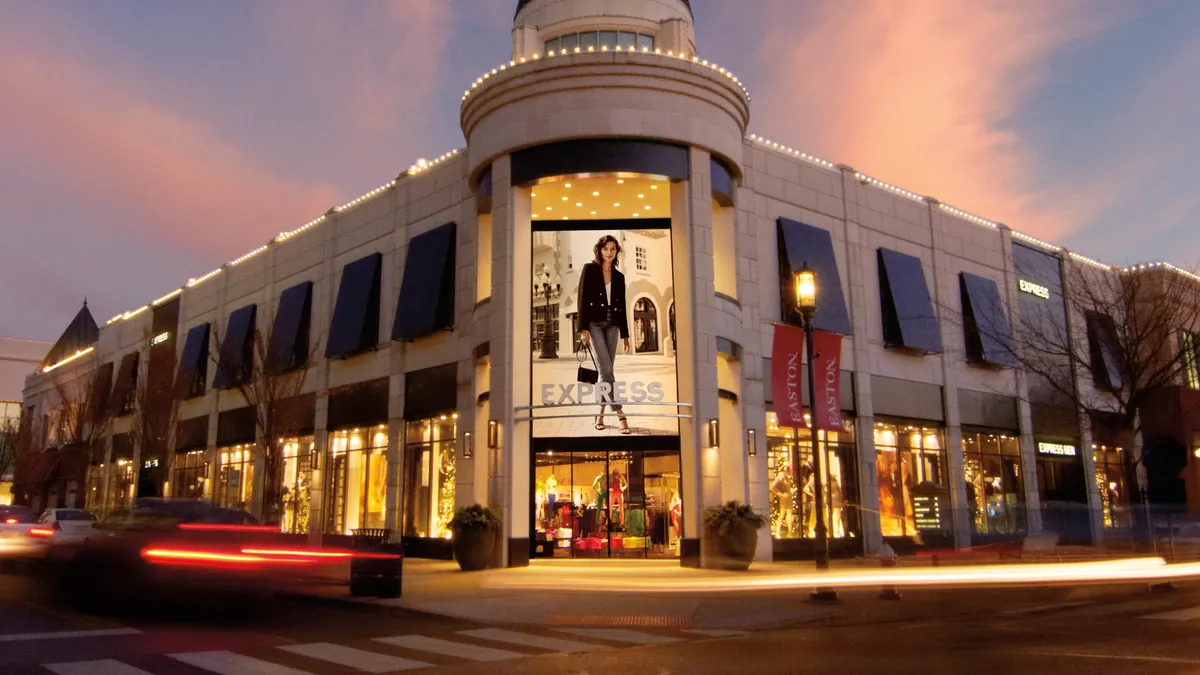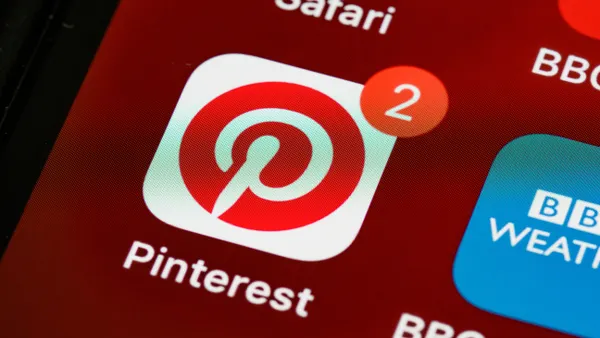Dive Brief:
-
Express on Wednesday said it would shutter about 100 stores by 2022, including nine already closed last year, 31 by the end of this month and 35 by the end of January 2021. The company as of November 2019 operated more than 600 stores, according to a document filed with the Securities and Exchange Commission. Express will also aim for savings through negotiations as store leases come up for renewal, according to CFO Perry Pericleous, speaking at a presentation to investors.
-
The closures and other brick-and-mortar adjustments are in addition to a three-year, $80 million expense reduction plan that will entail finding efficiencies in e-commerce, marketing and the supply chain, Pericleous said. The cost cuts include a 10% corporate workforce reduction announced earlier this month.
-
At the meeting and in a press release, CEO Tim Baxter also presented a turnaround strategy that goes beyond closures and cost cuts, including a new loyalty program and store credit card this coming fall, curation ("The Express Edit") that takes into account the casualization of fashion, and training for store staff to help customers with styling advice. The retailer said it will also expand its in-store pickup service for online orders.
Dive Insight:
Baxter, who arrived mid-year last year after the abrupt exit of CEO David Kornberg from Express a year ago, on Wednesday sounded genuinely excited about merchandising changes the retailer is making as part of its new strategy. Perhaps not surprising in light of his years-long stint as Macy's merchandising chief.
Indeed, he said that the changes afoot must involve more than new marketing, but also new product. He noted that the retailer was once a go-to destination for shoppers interested in expressing themselves through what they wore, and that it thrived by offering apparel for work, special occasions and going out. "When Express was a vibrant brand it was about fashion, it was about expressing confidence," he said.
He expressed confidence in new initiatives from Malissa Akay, who in August was named chief merchandising officer, but asked for patience, in light of the fact that the two of them have been at the company only a matter of months. For now, those won't include extended sizes, he said, in answer to an analyst question. That market has grown as apparel consumers increasingly demand sizing in a range rather than relegation to specialty plus-or petite-size stores or sections of stores.
The retailer on Wednesday also said it would expand brand partnerships and boost its denim sales, and touted its new online-only UpWest brand. Nearly 80% of U.S. shoppers wear denim, but less than 20% buy it from Express, Baxter noted. That effort in women's will require "an entire re-do" of its assortment, Baxter said, but added that the retailer at the moment offers "way too many choices" overall.
The retailer aims to expand margins and profits, but Baxter said that it will continue to be a promotional retailer, though in more targeted ways that he characterized as "offensive" rather than "defensive." He said that Express customers may have turned to fast fashion in the past, but that the company's research has found that they've been disappointed in the value at those competitors — and are therefore primed to return.
All in all, the plan is "solid," though the company must yet make it happen, according to Lee Peterson, executive vice president of thought leadership and marketing at WD Partners, who worked at L Brands precursor The Limited when Express (then "Limited Express") was still part of that stable.
"I would say that, given the current retail headwinds, particularly for specialty, their plan is about as good as it can get," he told Retail Dive in an email. "Implementation and execution are another matter of course, so there's definitely a 'we'll see' factor, but yeah, looks solid to me. Compare that to Gap's, which is ... what? Stick with Old Navy? Also, Express can operate in a space that Abercrombie, American Eagle, Gap, etc. cannot, which is a broader take on fashion, i.e., not just casual. So, again, yes, specialty's swimming upstream, but I think they have a fighting chance."
Correction: This story has been updated to clarify that store closures will be undertaken in addition to a three-year, $80 million expense reduction plan. Also that a 10% corporate workforce reduction announced earlier this month is incremental to that plan.
















